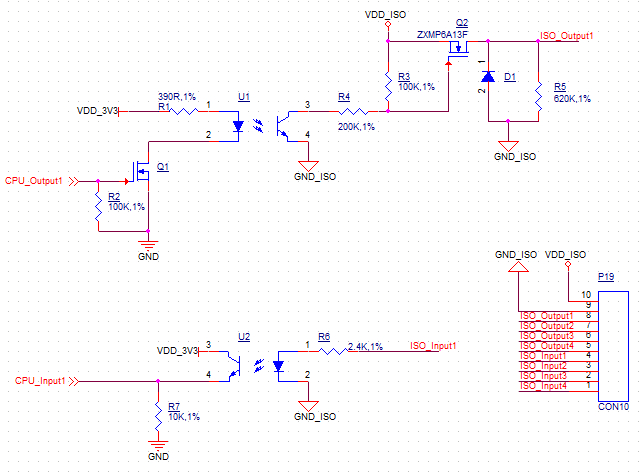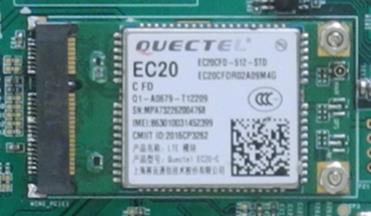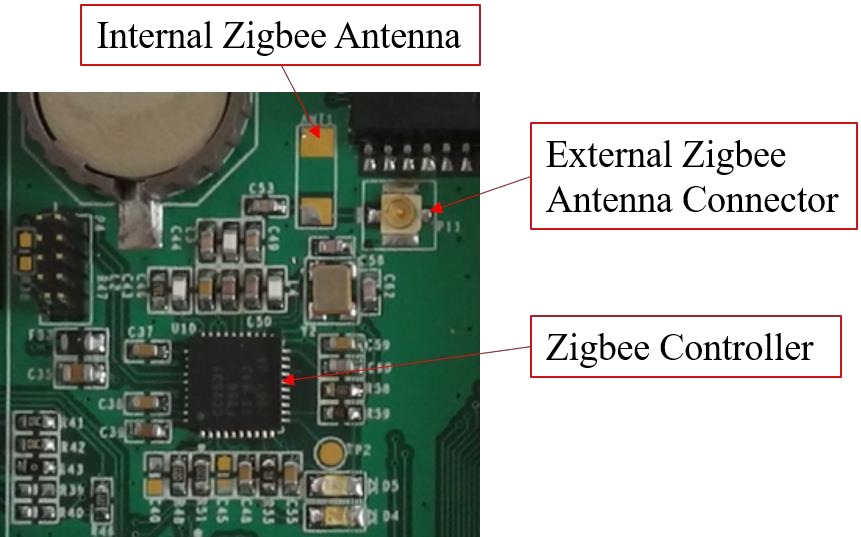PPC-CM4-150¶
Version 1.1




Product Overview¶
The Cortex®-A72 Raspberry Pi® series PPC-CM4-150 (PN: CS10768RA4150) is a high-quality industrial Pi PC. It features a 15” Ten-point capacitive touch screen with a resolution of 1024 x 768 pixels and brightness of 400 cd/m2.
It is available both as an embedded solution and as a device hosed in a casing with bezels, thus facilitating different installation options:
Installation on an industrial cabinet
Integration with the existing equipment
The PPC-CM4-150 industrial Pi PC is based around the powerful Raspberry Pi® Compute Module 4, powered by the Quad Cortex®-A72 processor with a processor speed of 1.5GHz.
Ordering Options¶
Chipsee products can be customized during the ordering process. The product will be shipped with the pre-installed factory defaults if no extra requirements are specified. The table in the Specifications section provides information about the default options bundled with the product.
Note
You can order PPC-CM4-150 from the official Chipsee Store or from your nearest distributor.
Pi® CM4 Module¶
The Pi® Compute Module 4 appears in different versions depending on the size of the DDR4 and eMMC.
The PPC-CM4-150 industrial Pi PC does not include the CM4 Raspberry Pi® module by default. If you would like to purchase it with a CM4, you can select it at the Chipsee store during the ordering process.
Operating System¶
This product comes with a pre-installed Raspberry Pi OS. Chipsee software engineers have created all the drivers, so every hardware feature is readily available for any standard development tool.
If your project requires a different OS, please Contact us, and we’ll make a customized version that suits your needs.
Optional Features¶
The PPC-CM4-150 industrial Pi PC does not include the 3G/4G/LTE modules by default. These modules are optional and can be selected at the Chipsee store during the ordering process.
Warning
Specifications¶
The PPC-CM4-150 industrial Pi PC offers a broad range of performance and connectivity options for scalable integration, providing expandability according to future needs. Some of the key features are listed in the table below.
PPC-CM4-150 |
|
|---|---|
CPU |
Raspberry Pi® CM4; Quad Cortex-A72 at 1.5GHz |
Storage |
Support for 1 x TF Card3 |
RAM |
2/4/8 GB, Based on CM4 |
eMMC |
16/32 GB, Based on CM4 |
Display |
15” IPS LCD, 1024 x 768 resolution, brightness 400 cd/m2 |
Touch |
10-point capacitive touch with 1mm Armored Glass |
USB |
2 x USB 3.0 Host, 1 x USB OTG |
LAN |
1 x Giga LAN |
Audio |
3.5mm Audio Out Connector, 2W Speaker Internal |
Buzzer |
Onboard Buzzer, driven by GPIO |
RTC |
High accuracy RTC with farad capacitor, can work 1 week after power off (default). High accuracy RTC with lithium coin battery, can work 3 years after power off (optional). |
RS232 |
Default to 2 x RS232, up to 4 x RS232 |
RS485 |
Default to 2 x RS4851, these 2 x RS485 can be configured as 2 x RS232 |
CAN |
1 x CAN-BUS |
GPIO |
8 Channels, 4 Input, 4 Output |
I2C |
Not Supported |
WiFi/BT |
Supported but depending on the CM4 selected2 |
ZIGBEE |
Onboard Zigbee module, not mounted by default |
HDMI |
Not Supported |
SATA II |
Not Supported |
3G/4G/LTE |
Supported, not mounted by default |
Camera |
No |
Power Input |
From 12V to 36V |
Current |
1400mA Max at 12V |
Power Consumption |
17W Typical |
Working Temperature |
From 0°C to +80°C |
OS |
Raspberry Pi OS |
Dimensions |
CS10768RA4150P: 376 x 300 x 57mm |
Weight |
CS10768RA4150P: 4500g |
Mounting Method |
CS10768RA4150P: Panel, VESA |
- 1
The RS485 circuit controls the Input and Output direction automatically, there’s no need to control it from within the software.
- 2
The default product without the CM4 does not include a Wi-Fi/BT module. You can include a CM4 that has the Wi-Fi/BT module at the Chipsee store during the ordering process.
- 3
This TF card is designed for storage expansion, as the TF card uses the same pins with WiFi, it can’t be used with WiFi at the same time
Power Input¶
The PPC-CM4-150 industrial Pi PC can be powered by a wide range of input voltages: From 12V to 36V DC. It is a 3 Pin, 3.81mm screw terminal connector. As shown in the figure below.
Power Input
Note that the “+” sign represents the positive power input, and it is printed both at the casing and as a silk-screen on the board of the embedded version. The “-” terminal is shorted to the ground.
Power Input Definition |
||
|---|---|---|
Pin Number |
Definition |
Description |
Pin 1 |
Positive Input |
DC Power Positive Terminal |
Pin 2 |
Negative Input |
DC Power Negative Terminal |
Pin 3 |
Ground |
Power System Ground |
Note
The system ground “G” is connected to power negative “-” on board.
Touch Screen¶
The PPC-CM4-150 industrial Pi PC uses a 10-point capacitive touch with 1mm Armored Glass screen. However, the Raspberry Pi OS supports only One-Point touch.
The figure below shows the capacitive touch screen connected to the motherboard via the USB connector.
Capacitive Touch Connector
Attention
A capacitive touch screen is susceptible to power noise and Electromagnetic Radiation (EMR). It may cause LCD ripples or even capacitive touch malfunction. If using a capacitive multi-touch test application, you might notice the touch points float erratically across the display. There are several solutions to this problem:
Use a high-quality Power Adapter Unit (PSU) with low EMR. You can also provide power from a battery.
Make sure that the PPC-CM4-150 Power Input connector (pin 3) is properly connected to the Power System Ground to provide sufficient EMI shielding and eliminate the problem entirely.
Bad GND problems can also be confirmed by touching pin 3 of the Power Input connector with one hand while operating the capacitive touch screen with the other hand. In this case, the operator’s body acts as the Power System Ground.
Connectivity¶
There are many connectivity options available on the PPC-CM4-150 industrial Pi PC. It has 2 x USB 3.0 Host, 1 x USB OTG, 1 x Giga LAN (RJ45) Ethernet connector supporting up to 1 Gbps, and 4 x UART and 1 x CAN terminals (RS232/RS485/CAN).
RS232/RS485/CAN¶
The serial communication interfaces (RS485, RS232, and CAN) are routed to a phoenix terminal, as illustrated in the figure below.
RS232-RS485-CAN on the PPC-CM4-150 Industrial PC
Attention
RS485_3 and RS485_5 can control the input and output direction automatically. There’s no need to control it from within the software.
The 120Ω match resistor for RS485 is already mounted by default.
The 120Ω match resistor for CAN is NOT mounted by default. Be sure to mount the match resistor when testing CAN.
The 2 x RS485 can be configured to 2 x RS232, if you want a custom configuration, you can contact us when placing an order.
The table below offers more detailed description of every pin and its definition:
RS232 / RS485 / CAN Pin Definition: |
||
|---|---|---|
Pin Number |
Definition |
Description |
Pin 1 |
CAN_H |
CAN BUS “H” signal |
Pin 2 |
CAN_L |
CAN BUS “L” signal |
Pin 3 |
RS485_5- |
CPU UART5, RS485 –(B) signal |
Pin 4 |
RS485_5+ |
CPU UART5, RS485 +(A) signal |
Pin 5 |
RS485_3- |
CPU UART3, RS485 –(B) signal |
Pin 6 |
RS485_3+ |
CPU UART3, RS485 +(A) signal |
Pin 7 |
RS232_2_RXD |
CPU UART2, RS232 RXD signal |
Pin 8 |
RS232_2_TXD |
CPU UART2, RS232 TXD signal |
Pin 9 |
RS232_0_RXD |
CPU UART0, RS232 RXD signal |
Pin 10 |
RS232_0_TXD |
CPU UART0, RS232 TXD signal |
Pin 11 |
GND |
System Ground |
Pin 12 |
+5V |
System +5V Power Output, No more than 1A Current output |
GPIO Port¶
The PPC-CM4-150 industrial Pi PC has a phoenix connector, as shown in the figure below. The table below gives details about the definition of every Pin.
Attention
In order to use the Isolated Output, you need to add an external Isolated Power to the VDD_ISO and GND_ISO. The power voltage should not exceed 24V.
The output current can achieve 500mA for every channel, but it also depends on the isolated power that is connected.
In order to use the Isolated Input, you need to add a signal to the ISO_InputX and GND_ISO. A 2.4KΩ resistor, as R6, can be added to limit the input current, as shown in the figure above. This resistor should work well for the 5-24V input signal. If your input signal is less than 5V, please change this input resistor.

Isolated GPIO reduced schematic
GPIO Connector
GPIO Connector Pin Definition: |
||
|---|---|---|
Pin Number |
Definition |
Description |
Pin 12 |
24V_ISO |
Isolated Power +24V Input |
Pin 11 |
GND_ISO |
Isolated Ground |
Pin 10 |
OUT1 |
Isolated Output 1 |
Pin 9 |
OUT2 |
Isolated Output 2 |
Pin 8 |
OUT3 |
Isolated Output 3 |
Pin 7 |
OUT4 |
Isolated Output 4 |
Pin 6 |
IN1 |
Isolated Input 1 |
Pin 5 |
IN2 |
Isolated Input 2 |
Pin 4 |
IN3 |
Isolated Input 3 |
Pin 3 |
IN4 |
Isolated Input 4 |
USB Connectors¶
There are 2 x USB 3.0 Host, 1 x USB OTG onboard, as shown in the figure below.
USB HOST Connectors
Attention
1. These two USB host connectors can drive 500mA for each channel at most.
The product has one USB Type-C OTG connector that works as a slave by default. You can use it to establish a connection with the host PC and for downloading the system to the eMMC of CM4 module.
USB Type-C OTG Connector
Warning
Be careful not to touch surrounding electronic components accidentally while plugging in USB devices into the embedded Industrial PC version.
Remember to unplug the Type-C cable after flashing OS, otherwise the USB hosts won’t work.
LAN¶
The 1 x Giga LAN provides Ethernet connectivity over standardized Ethernet cables as shown in the figure below. The integrated Ethernet interface supports up to 1 Gbps data throughput. These Giga LAN signals come from the CM4 module directly.
RJ45 LAN Connector
Note
Use CAT5 or better cables to achieve full data throughput over maximum distance defined by the 1000BASE-T standard (100m).
WiFi & BT Module¶
The default PPC-CM4-150 without the CM4 does not include a Wi-Fi/BT module.
If you include a CM4 that has the Wi-Fi/BT module, the product will have Wi-Fi/BT feature.
The enclosed (CS10768RA4150P) variant of the product also includes an SMA connector for an external WiFi/BT antenna, as illustrated in the figure below.
WiFi+BT Antenna
Attention
The product does not come shipped with the Wi-Fi/BT module by default.
3G/4G/LTE Module¶
The PPC-CM4-150 industrial Pi PC is equipped with a mini-PCIe connector that can connect to a 3G/4G/LTE module. The customer will also need a SIM Card Holder and a 3G/4G/LTE antenna to ensure 3G/4G/LTE works on the PPC-CM4-150. SIM card does NOT support hot plug. Power off before inserting or removing SIM card.
SIM Card Direction

Figure 950: 3G/4G/LTE Module¶

Figure 951: SIM Card Holder and 3G/4G/LTE Antenna¶
Attention
The product does not come shipped with the 3G/4G/LTE module by default. If you need to use 3G/4G/LTE, you can contact us when placing an order, we can install the necessary hardware for you.
Zigbee Module¶
The PPC-CM4-150 industrial Pi PC supports an onboard Zigbee module. The Zigbee controller is TI CC2531, and the Raspberry Pi forum supports it.
For CS10768RA4150P, there is a connector on the backside of the case that you can use to connect the external Zigbee antenna, as described in the figure below. If you need to use WiFi/BT and Zigbee together, we can customized the case and add another SMA connector for you, usually across the rear to the opposite of the current SMA.

Figure 952: Zigbee controller¶
Zigbee Antenna
Attention
The product does not come with the Zigbee module by default.
TF Card Slot¶
The PPC-CM4-150 industrial Pi PC features 1 x TF Card (micro SD) slot. A slot can address up to 128GB of memory.
TF (micro SD) Card Slot
Attention
The SD is used for memory extension. It can’t be used for system boot-up.
This storage extension SD uses the same pins as WiFi on CM4. SD storage and WiFi can’t be used at the same time.
The product does not come shipped with the TF card by default.
Audio Connectors¶
The PPC-CM4-150 industrial Pi PC features some audio peripherals. It has 1 x 3.5mm audio output jack.
Also, the PPC-CM4-150 industrial Pi PC has a miniature 2W internal speaker for audio reproduction, as well as a small buzzer for alarm/notification sounds.
Audio Connector
Attention
By plugging in the headphone cable, the internal speaker will be disabled automatically.
Mounting Procedure¶
The PPC-CM4-150 industrial Pi PC can be mounted with 4 x M4 (6mm) screws using the VESA (100x100mm or 75x75mm) mount.
The PPC-CM4-150 industrial Pi PC can be mounted with panel mount method, enabling simplified installation onto any standard mounting fixture.
Attention
Please make sure the display is not exposed to high pressure when mounting into an enclosure.
You can find detailed information about mounting in the Mount IPC Guide.
Mechanical Specifications¶
CS10768RA4150P¶
For CS10768RA4150P, the outer mechanical dimensions are 376 x 300 x 57mm (W x L x H).
3D Model¶
As of Mar 23, 2024, the 3D asset of the product is being actively prepared, and will be available soon.
PPC-CM4-150 3D model can be viewed in the online doc in a web browser, if you are reading from the PDF version, please visit the online doc PPC-CM4-150, select hardware documentation, drag the navigation bar to the 3D Model section.
Disclaimer¶
This document is provided strictly for informational purposes. Its contents are subject to change without notice. Chipsee assumes no responsibility for any errors that may occur in this document. Furthermore, Chipsee reserves the right to alter the hardware, software, and/or specifications set forth herein at any time without prior notice and undertakes no obligation to update the information contained in this document.
While every effort has been made to ensure the accuracy of the information contained herein, this document is not guaranteed to be error-free. Further, it does not offer any warranties or conditions, whether expressed orally or implied in law, including implied warranties and conditions of merchantability or fitness for a particular purpose. We specifically disclaim any liability with respect to this document, and no contractual obligations are formed either directly or indirectly by this document.
Despite our best efforts to maintain the accuracy of the information in this document, we assume no responsibility for errors or omissions, nor for damages resulting from the use of the information herein. Please note that Chipsee products are not authorized for use as critical components in life support devices or systems.
Technical Support¶
If you encounter any difficulties or have questions related to this document, we encourage you to refer to our other documentation for potential solutions. If you cannot find the solution you’re looking for, feel free to contact us. Please email Chipsee Technical Support at support@chipsee.com, providing all relevant information. We value your queries and suggestions and are committed to providing you with the assistance you require.











